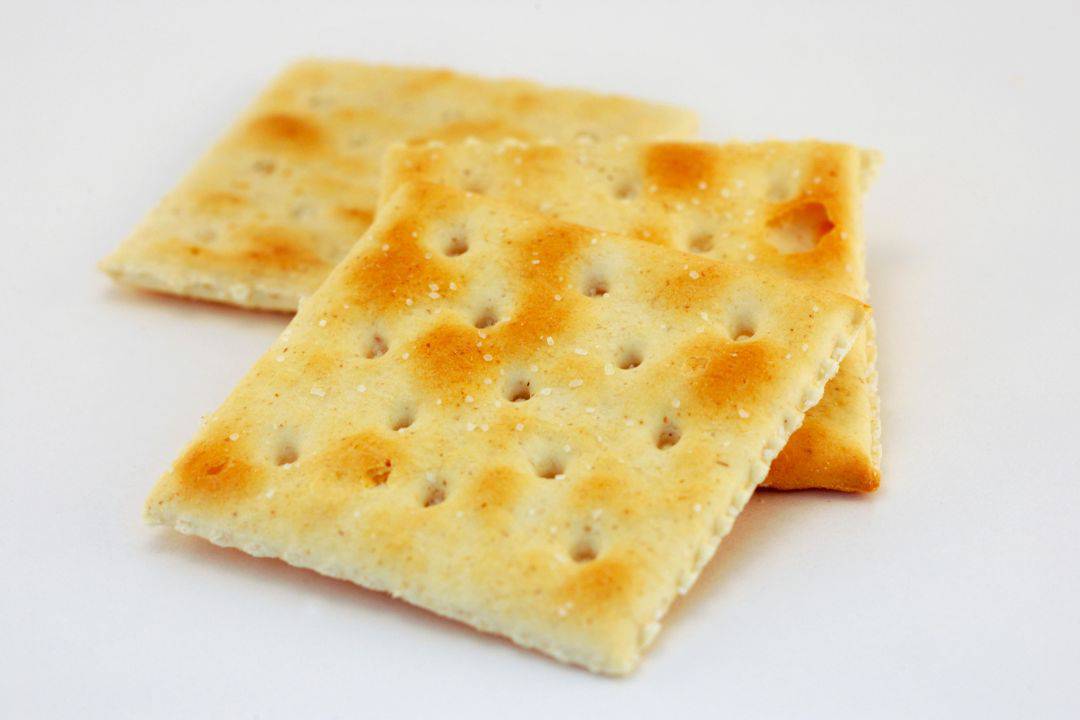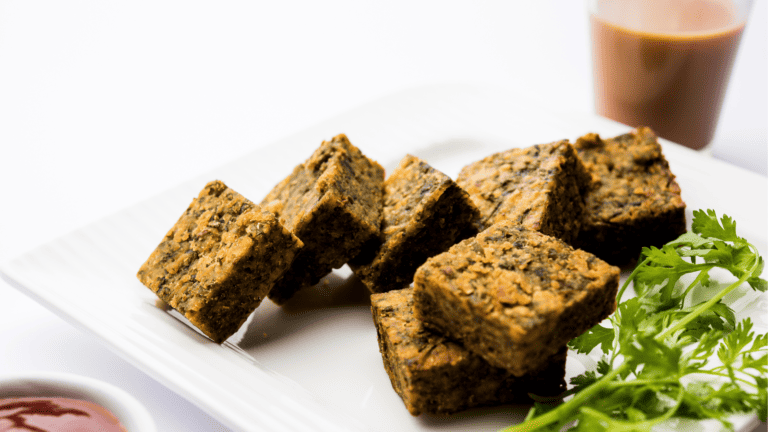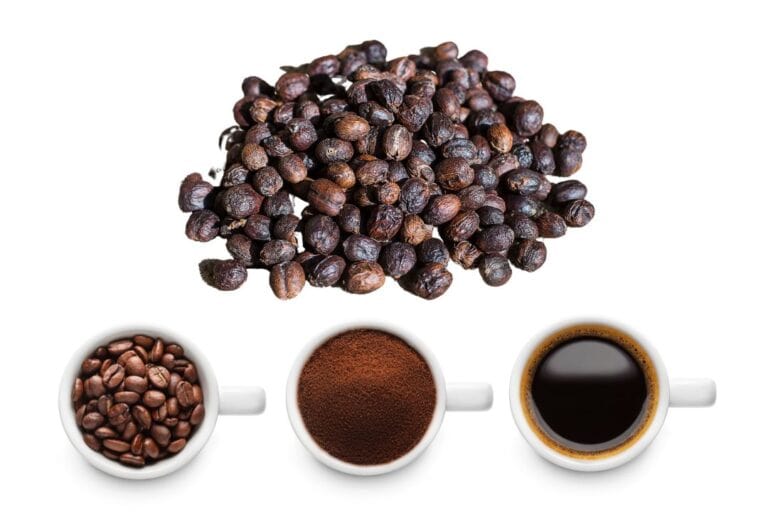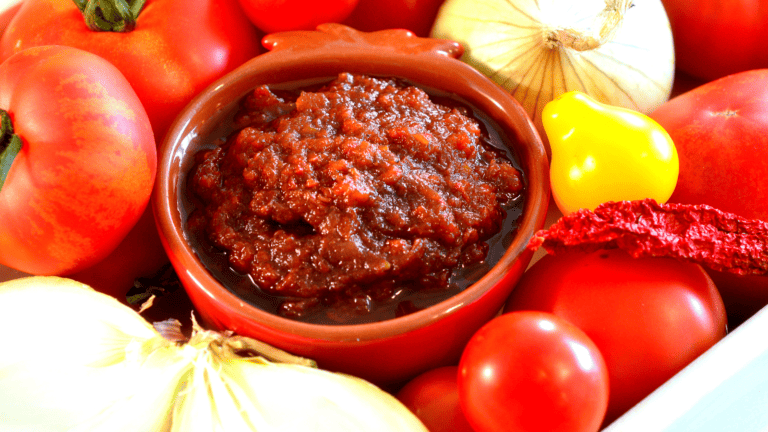Are Saltines Vegan Friendly? Quick Guide to Crackers
Saltine crackers, also known as saltine crackers, have been a staple snack in households across the United States for years. These square crackers are found in local grocery stores and offer a light, crispy bite that many find irresistible. But many questions arise: “Are saltines suitable for vegans?
When examining the ingredients in most brands of saltine crackers, the essential components often include white flour, coarse salt, and sometimes elements like folic acid, thiamine mononitrate (a form of vitamin B), and citric acid.

These are generally considered vegan. However, the genuine concern for those on a vegan diet arises from potential non-vegan or controversial ingredients.
A notable point of contention is the use of bone char in the refining process of white sugar. While not all saltines use white sugar, and not every white sugar uses bone char, it’s a concern for strict vegans.
High fructose corn syrup, hydrogenated oils (including hydrogenated cottonseed oil), and artificial flavors can also be concerning, not necessarily from a vegan standpoint but from a health perspective.
Brands like Nabisco, which produces the renowned Nabisco Premium Saltine Crackers, often follow straightforward recipes.
However, variations between different brands might introduce animal-based ingredients. For instance, some crackers might contain whey protein derived from milk.
Are Saltines Vegan? Exploring Their Ingredients
Diving deep into the ingredients used in their production is essential, including vegan-certified sea salt, non-GMO, and palm oil. Uncovering the truth behind palm oil and pantry saltine crackers will help you make an informed decision about including these snack crackers in your vegan diet.
Understanding why scrutinizing ingredient lists is crucial for vegans who want to ensure they are not consuming animal-derived products, including palm oil, in their snack crackers. Look at the snack product ingredients commonly found in saltines and their vegan suitability, including palm oil.
Analyzing the Ingredients Used
Wheat Flour: The primary ingredient in most saltine crackers, a popular snack product, is wheat flour, which is typically vegan-friendly and does not contain palm oil. However, it’s essential to check if any additional additives or flavorings containing animal derivatives have been incorporated into the product.
Additionally, it’s necessary to consider if the product contains palm oil.
Saltines usually contain vegetable oils such as soybean or canola oil, common ingredients in this product. These plant-based oils are vegan-friendly and pose no issues for vegans. The product is suitable for vegans.
Salt: As the name suggests, saltines contain salt, a key ingredient in this product. Additionally, the product does not have any oil. Salt, an oil-free product, is vegan-friendly and contains no animal ingredients. It is safe for vegans to consume.
Some brands may use sugar as an ingredient in their saltine crackers, making it a standard product. While sugar itself doesn’t pose an issue for vegans, it’s worth noting that some sugars undergo filtration processes using bone char, which may concern strict vegans who are conscious about the product.
Leavening Agents: Common leavening agents used in saltines include baking soda, yeast, and oil, which are vegan-friendly.
Soy Lecithin: One potential non-vegan ingredient found in certain brands of saltines is soy lecithin. Although derived from soybeans, some manufacturers use a refining process involving animal fats during its production.
Therefore, it’s advisable to check the specific brand’s sourcing and manufacturing practices before considering its vegan suitability.
Other Additives: Saltines may contain additives such as malted barley flour, cornstarch, or natural flavors. While these ingredients are generally vegan-friendly, verifying their sources and production methods is always good.
Dairy in Saltine Crackers: Unraveling the Mystery
Saltine crackers are a beloved snack that can be enjoyed independently or paired with various toppings. But for those following a vegan lifestyle, knowing whether these crispy treats contain dairy products is essential.
Let’s dive into the presence (or absence) of dairy in saltine crackers and explore common dairy-derived ingredients that may be found in some brands.
Most mainstream options, such as Premium Saltine Crackers, Krispy Saltine Crackers, and Harris Teeter Saltine Crackers, do not contain dairy. These classic soda crackers typically contain simple ingredients like flour, water, vegetable oil, baking soda, and salt.
However, checking the specific brand and reading the label carefully is essential, as formulations can vary.
While plain saltines are usually safe for vegans, certain flavors or variations might include dairy-derived ingredients. Some brands may offer flavored saltine crackers, such as soup or varied ties with added seasonings.
In these cases, it is crucial to scrutinize the ingredient list for any mention of milk powder or other dairy components.
Avoiding dairy is especially important for individuals adhering to a vegan lifestyle due to ethical concerns regarding animal welfare and environmental sustainability.
By abstaining from consuming animal products like milk and its derivatives, vegans aim to reduce their impact on animals and promote a more compassionate world.
Understanding the potential presence of dairy in saltines allows vegans to make informed choices when selecting their snacks. They can enjoy this crispy treat without compromising their values by opting for dairy-free alternatives.
Store-brand saltines often provide suitable options that are both affordable and vegan-friendly.
In addition to being vegan-friendly, saltine crackers offer versatility beyond snacking alone. They can serve as a base for appetizers by pairing them with plant-based spreads like hummus or guacamole.
Crushed saltines can be used as a breadcrumb substitute in vegan recipes, adding a delightful crunch to dishes like veggie burgers or casseroles.
Saltine crackers are generally vegan-friendly, but it’s essential to be cautious of flavored variations containing dairy-derived ingredients. Reading labels and opting for plain varieties is the best way to ensure you choose a suitable vegan lifestyle.
So enjoy these crispy delights with confidence, knowing they align with your ethical dietary preferences.
Sources:
Analyzing Saltine Ingredients: Unbleached Enriched Flour and More
Understanding the ingredients is vital for those following a vegan lifestyle. Let’s look at the main components commonly found in these crispy snacks, starting with the essential element of unbleached enriched flour.
Unbleached Enriched Flour: The Foundation of Saltines
Unbleached enriched flour, or white or wheat flour, is the main ingredient in saltiness. This versatile flour undergoes a refining process that removes the bran and germ, resulting in a finer texture and longer shelf life. However, not all unbleached flours are vegan-friendly.
While unbleached enriched flour is plant-based, some brands may improve their products using animal-derived additives. Malted barley flour or barley flour can be used as enrichment agents, potentially compromising the vegan status of certain saltiness.
It is crucial to carefully examine the ingredients list to ensure no non-vegan additives are present.
Exploring Additional Components
Apart from unbleached enriched flour, saltines may contain other ingredients vegans must scrutinize. Leavening agents play a significant role in giving these crackers their characteristic lightness and crispiness.
Sodium bicarbonate (baking soda) is commonly used as a leavening agent in saltine recipes.
However, it’s important to note that some baking sodas on the market may include sodium sulfite as an anti-caking agent. Sodium sulfite is derived from animal sources and, therefore, unsuitable for vegans.
To ensure your chosen brand of saltines aligns with your dietary preferences, double-check the main ingredients and any potential additives listed on the packaging.
Hidden Non-Vegan Additives
Although most saltine brands aim to keep their recipes simple, there is always room for hidden non-vegan additives within the ingredient list. Some manufacturers may include dairy products, such as milk powder or butter, to enhance the flavor or texture of their crackers.
Moreover, unsalted top saltines might contain monoglycerides or diglycerides, which can be derived from animal fats. These emulsifiers help maintain the desired consistency and extend shelf life but may pose a challenge for those adhering to a vegan lifestyle.
To ensure you’re making an informed choice, carefully read the ingredients list on the packaging of your preferred saltine brand. Contact the manufacturer directly if the vegan status of any ingredient is uncertain.
The Verdict: Vegan Status of Saltine Crackers
Are saltine crackers Vegan friendly? Can you confidently include them in your plant-based diet? Let’s dive into the details and uncover the truth about their vegan status.
Saltine crackers are a popular choice for many snack enthusiasts. They are light, crispy, and often enjoyed with various toppings or as an accompaniment to soups and salads. However, there are a few factors to consider.
Firstly, let’s address the main concern – the ingredients. Most saltine crackers have a simple ingredient list consisting of flour, water, oil or shortening, yeast, baking soda, and salt.
These essential components suggest that they should be vegan-friendly. However, it is crucial to examine each ingredient more closely.
Flour is typically derived from grains such as wheat or rice and poses no concerns for vegans. Water is vegan-friendly, too. Oil or shortening used in saltines can vary between brands and might include vegetable oils like soybean or palm oil.
While these oils are plant-based, some vegans prefer to avoid certain types due to ethical or environmental reasons.
Yeast is another ingredient commonly found in saltiness. It is generally considered vegan since it is derived from fungi rather than animals. Baking soda is a leavening agent in these crackers and is usually made synthetically without animal-derived additives.
Lastly, we have salt – a fundamental component of saltine crackers. Salt is typically vegan-friendly; however, some brands may use iodized salt that contains anti-caking agents that could be sourced from animal products or processed using non-vegan methods.
To ensure your chosen brand of saltine crackers aligns with your dietary preferences, look for those labeled “vegan” or “suitable for vegans.” Checking for a non-GMO label can provide further reassurance.
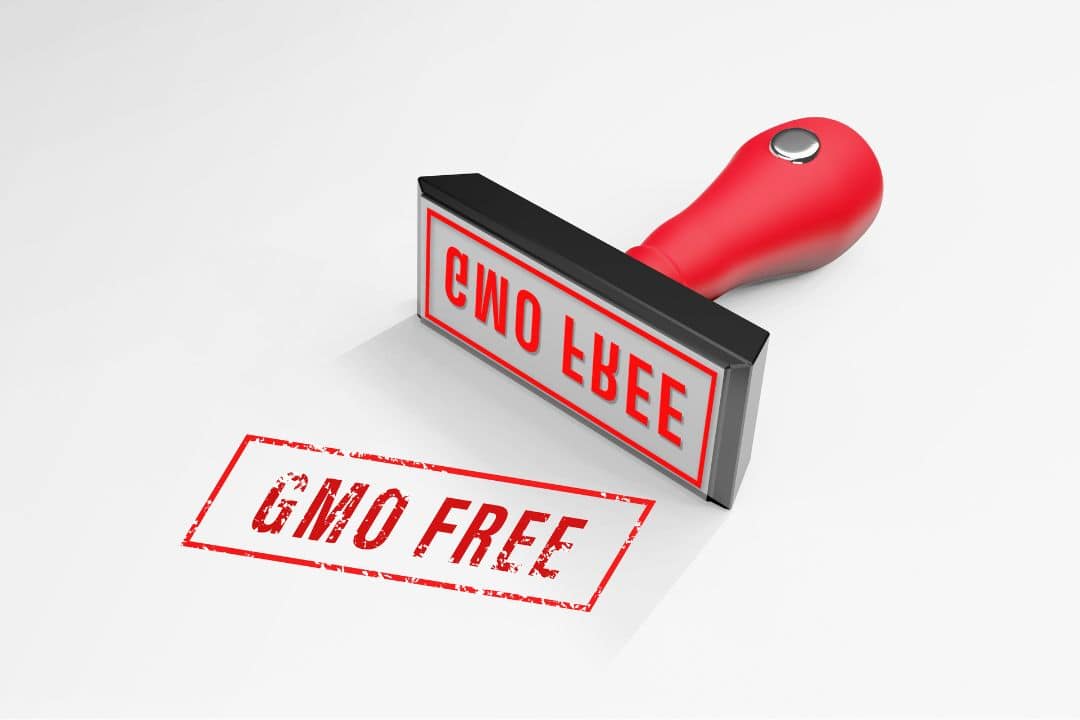
While most saltine crackers are vegan-friendly, it’s important to note that exceptions or variations could affect their vegan status. Some brands might add flavorings, spices, or ingredients like honey or milk derivatives to enhance the taste.
Therefore, always read the ingredient list carefully before making a purchase.
To summarize:
- Saltine crackers are typically made with vegan-friendly ingredients such as flour, water, oil or shortening, yeast, baking soda, and salt.
- Check the specific brand for added flavorings or ingredients that may not align with a vegan diet.
- Look for crackers labeled “vegan” or “suitable for vegans” to ensure they meet your dietary preferences.
- Opt for brands with a non-GMO label if you prioritize avoiding genetically modified organisms.
Alternative Vegan Cracker Brands: Mary’s Organic and Keebler Zesta
Crackers are a popular go-to option. But for those following a vegan lifestyle, finding suitable options can sometimes be challenging. While traditional saltines may not fit the bill, there are alternative cracker brands that offer vegan-friendly options without compromising taste or quality.
This quick cracker guide will explore two brands: Mary’s Organic and Keebler Zesta.
Explore Alternative Cracker Brands
If you’re tired of the same old saltines and want to try something different, alternative cracker brands can provide exciting options. These brands offer a range of flavors and ingredients that cater specifically to vegans.
Expanding your horizons beyond usual suspects, you’ll discover new favorites that perfectly suit your dietary preferences.
Mary’s Organic: A Health-Conscious Choice for Vegans
Mary’s Organic is a brand that stands out for its commitment to using high-quality organic ingredients in its products. Their crackers are made with wholesome seeds like flaxseeds, quinoa, and sesame seeds.
These nutrient-rich additions enhance the flavor and provide extra health benefits.
With Mary’s Organic Crackers, you can enjoy a guilt-free snacking experience while staying true to your vegan principles. They contain no dairy or animal-derived ingredients, making them an ideal choice for vegans looking for tasty alternatives.
Keebler Zesta: Flavorful Variety for Vegan Snackers
Keebler Zesta is another famous brand known for its wide range of cracker varieties. What sets them apart is their ability to offer delightful flavors while still being suitable for vegans.
Whether you’re in the mood for classic saltine crackers or crave something more adventurous, like their toasted onion flavor, Keebler Zesta has got you covered.
These crackers from Keebler Zesta do not contain any animal products, making them a reliable choice for vegans. Their crispy texture and delicious taste make them perfect for snacking or pairing with your favorite vegan dips and spreads.
Gluten-Free Options: Exploring Saltine Crackers for Vegans
Are you a vegan with dietary restrictions? Do you often find it challenging to discover suitable snacks catering to your vegan and gluten-free diets? Look no further!
This quick guide will delve into saltine crackers, exploring whether they are vegan-friendly and if gluten-free options are available. Let’s dive right in!
Gluten-Free Saltine Crackers: A Great Option for Those with Dietary Restrictions
Finding suitable snacks can be difficult for individuals with celiac disease or those following a gluten-free diet. The good news is that gluten-free saltine crackers are available today. These crackers are specifically crafted to meet the needs of individuals who cannot consume wheat gluten.
Various alternatives exist that are safe for consumption and deliciously satisfying. Here are some notable choices:
- Wheat Thins: These crispy delights offer a fantastic alternative to traditional saltines. Wheat Thins are made from whole grain rice flour or cornmeal, have a crunchy texture, and come in various flavors.
- Whole Grain Crackers: Opting for whole-grain varieties ensures you get the nutritional benefits while avoiding gluten. Brands like Mary’s Gone Crackers and Crunchmaster offer delectable options from ingredients such as quinoa, flax seeds, and brown rice.
- Coconut Flour Crackers: If you’re looking for a unique twist on traditional saltines, coconut flour crackers might be just what you need. They provide a subtly sweet taste and pair well with various spreads or dips.
- Soy-Based Crackers: Soy-based crackers can be an excellent option. Brands like Blue Diamond make flavorful soy-based crackers that are both vegan-friendly and gluten-free.
When exploring gluten-free saltine crackers, it’s essential to consider the ingredients used in their production. Some common ingredients you may come across include:
- Vegetable oil (such as sunflower or corn oil)
- Soybean oil
- Corn
- Whole wheat
- Coconut flour
By carefully reading the labels, you can ensure that the crackers align with your dietary needs and preferences.
Vegan-Friendly Crackers and Final Thoughts
Now that we’ve delved into the world of crackers, specifically saltines, let’s recap what we’ve learned. We explored the ingredients of saltine crackers to determine if they are vegan-friendly.
We unraveled the mystery of dairy in saltine crackers and analyzed key ingredients like unbleached enriched flour. After careful consideration, it has been determined that saltine crackers are indeed vegan.
However, if you’re looking for alternative vegan cracker brands, Mary’s Organic and Keebler Zesta are excellent options. Gluten-free saltine cracker alternatives are also available for those following a gluten-free diet.
So whether you’re a vegan or simply looking for a tasty snack, there’s a wide range of choices to suit your preferences.
FAQs – Are Saltines Vegan Friendly?
Are all Mary’s Organic crackers vegan?
👉 Yes, all Mary’s Organic crackers are vegan-friendly. They are made with plant-based ingredients and do not contain any animal products.
Do Keebler Zesta crackers contain any dairy?
👉 No, Keebler Zesta crackers do not contain any dairy ingredients. They are suitable for vegans and individuals with lactose intolerance.
Are gluten-free saltine crackers available in stores?
👉 Yes, many grocery stores carry gluten-free saltine cracker options. Look for brands that specifically label their products as gluten-free.
Can I find flavored vegan-friendly crackers?
👉 Absolutely! A wide variety of flavored vegan-friendly crackers are available on the market today. From savory herbs to spicy seasonings, you can find delicious options to satisfy your taste buds.
Are there any low-sodium vegan cracker options?
👉 Yes, some brands offer low-sodium versions of their vegan cracker varieties. Check the nutrition labels or look for specific low-sodium claims on the packaging to find suitable options for your dietary needs.
Whether you’re seeking vegan-friendly crackers, exploring gluten-free alternatives, or looking for flavored options, a wide range of choices are available. Always check the ingredients and labels to ensure the products align with your dietary preferences. Happy snacking!
Reference: https://www.healthline.com/nutrition/are-saltine-crackers-healthy

Born and raised in a family of foodies, Georgia’s passion for cuisine was nurtured from a young age as she learned the intricacies of flavor and texture from her grandmother’s kitchen. As an adult, this early fascination blossomed into a full-fledged love affair with the culinary world.

